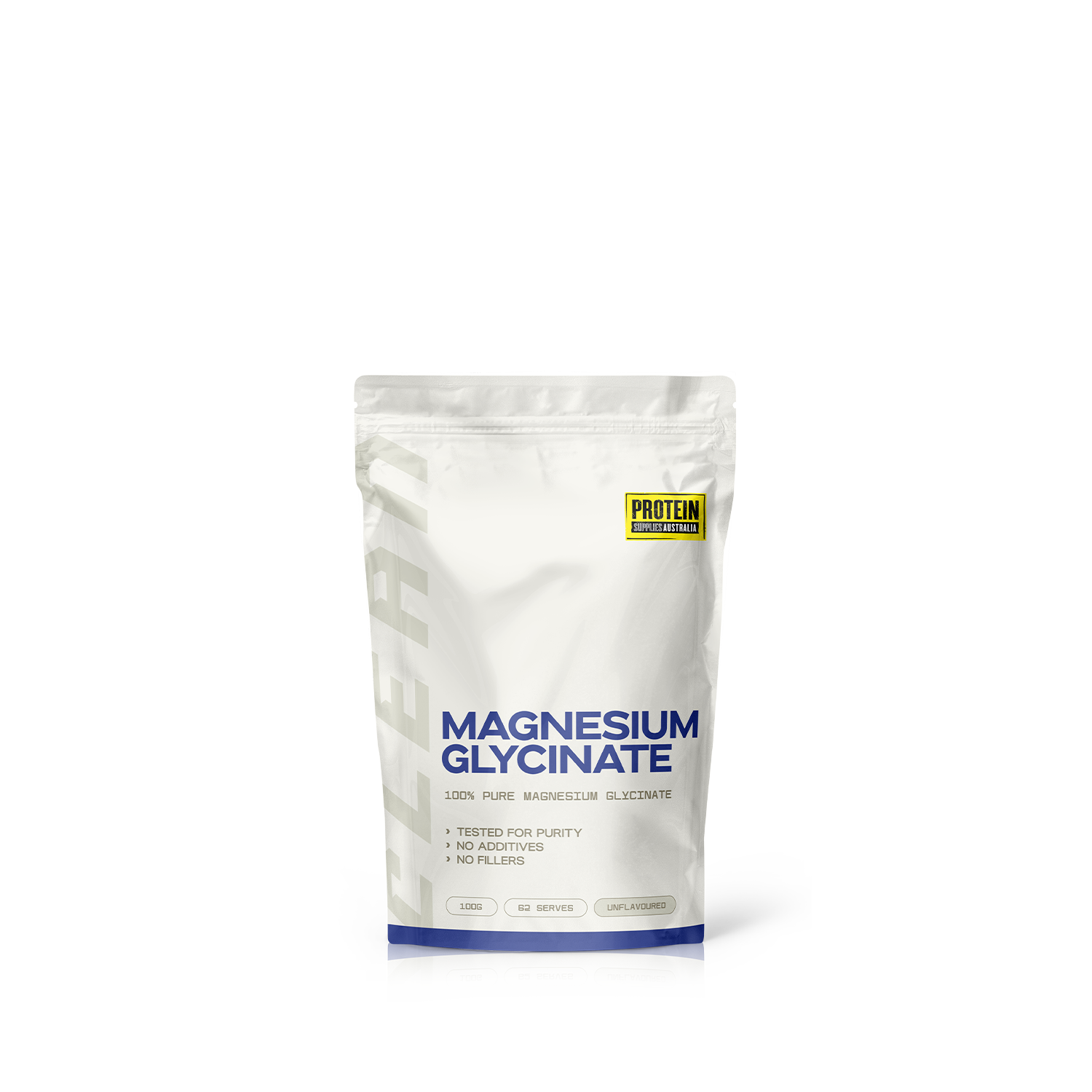Magnesium is an essential mineral that plays a critical role in hundreds of biochemical reactions in the human body. From supporting muscle function and energy production to maintaining bone health and regulating blood sugar levels, magnesium is indispensable for overall health. Yet, many Australians remain unaware of when the best time to take magnesium is, or how to incorporate dietary supplements effectively into their routines.
In this guide, we’ll explore everything you need to know about magnesium supplementation, including the best time to take magnesium, how much magnesium you need, the different types of supplements available, and how to optimise absorption for maximum benefit.
Understanding Magnesium and Its Importance
Magnesium plays a pivotal role in:
-
Muscle relaxation and recovery
-
Energy production
-
Nervous system regulation
-
Bone health
-
Protein synthesis
-
Regulating blood pressure
-
Improving sleep quality
Deficiency in magnesium can result in symptoms such as muscle cramps, fatigue, muscle weakness, abnormal heart rhythm, and even increased risk of health conditions like high blood pressure and cardiac arrest.
According to the Recommended Dietary Allowance (RDA), adults should aim for 310–420 mg of magnesium per day. However, magnesium intake often falls short due to dietary habits or medical conditions, making magnesium supplementation a practical option.
Best Time to Take Magnesium
So, what is the best time to take magnesium?
The short answer: it depends on your health goals and lifestyle. Some prefer taking magnesium in the morning to support energy levels and brain function, while others take it at night to improve sleep and promote muscle relaxation. The best time to take magnesium depends on these specific goals and the type of magnesium used.
Clinical nutrition experts suggest consistency is more important than the specific time. However, timing might vary based on the type of magnesium supplement you take:
-
Magnesium glycinate: Best taken in the evening due to its calming effects.
-
Magnesium citrate: Often used for bowel movement support; best taken on an empty stomach.
-
Magnesium oxide: A common form with laxative properties, suitable for daytime use.
-
Magnesium chloride: Can be taken with meals to aid absorption.
-
Magnesium sulfate: Typically used in clinical settings, like treating constipation or muscle tension.
-
Magnesium threonate: Promising for cognitive function, best taken in split doses across the day.
Ultimately, consistency and form matter more than timing alone.
Should Magnesium Be Taken With Food?
Yes. Taking magnesium supplements with food can enhance magnesium absorption and reduce side effects such as nausea and diarrhoea. For example, pairing magnesium with meals that include green leafy vegetables, whole grains, and foods high in fibre can improve its uptake. However, it's important to note that certain foods, particularly those high in fiber, may hinder the absorption of magnesium. Therefore, timing the consumption of magnesium supplements in relation to certain foods is crucial for optimal effectiveness.
Foods Rich in Magnesium
Magnesium is found naturally in a variety of foods, including green leafy vegetables, whole grains, nuts, and seeds. Some of the richest sources of magnesium include dark leafy greens like spinach and kale, almonds, cashews, and black beans. Additionally, magnesium is often added to fortified foods such as cereals and energy bars. However, many individuals do not consume enough magnesium through their diet alone, making supplementation a popular option. It is essential to note that the recommended dietary allowance (RDA) for magnesium varies by age and sex, and individuals with certain health conditions, such as gastrointestinal diseases or type 2 diabetes, may be at a higher risk of magnesium deficiency.
Interactions With Other Supplements and Medications
Timing also matters when taking magnesium alongside other supplements or medications. Magnesium can interfere with the absorption of certain medications, including specific antibiotics, thyroid medications, and bisphosphonates.
It’s advised to space magnesium supplements 2 hours before or 4–6 hours after these medications. If you’re on a complex supplement regimen, speak with a registered dietitian nutritionist or healthcare provider for guidance.
Signs of Magnesium Deficiency
Understanding magnesium deficiency is crucial. Common symptoms include:
-
Muscle cramps or spasms
-
Insomnia
-
Anxiety or irritability
-
Fatigue or low energy
-
Poor memory or cognitive function
-
Constipation
-
Irregular bowel movements
A blood test can help determine your magnesium levels. Certain health conditions like diabetes or gastrointestinal disorders may increase the risk of low magnesium.
How Much Magnesium Should You Take?
How much magnesium you need depends on age, gender, and specific health needs. The general dietary allowance is:
-
Men (19-30 years): 400 mg/day
-
Men (31+ years): 420 mg/day
-
Women (19-30 years): 310 mg/day
-
Women (31+ years): 320 mg/day
Older adults, pregnant women, or those with chronic conditions may need higher amounts. Always consult a healthcare provider before taking high doses. Meeting daily magnesium needs is crucial, and taking supplements can help ensure sufficient intake, especially for those with deficiencies.
Choosing the Right Supplement Form
The form of magnesium affects how well it is absorbed:
-
Magnesium citrate and magnesium glycinate are known to be more easily absorbed.
-
Magnesium oxide is more concentrated but less bioavailable.
-
Magnesium chloride has good absorption and is used for treating constipation.
-
Magnesium threonate is valued for brain and cognitive function.
-
Magnesium sulfate is commonly used in clinical treatments.
When you take magnesium supplements, it's important to choose the right form to ensure optimal absorption and effectiveness. Consulting with a healthcare provider can help determine the best type for your specific health needs.
Magnesium and Sleep Quality
Magnesium plays a critical role in promoting relaxation and improving sleep quality. Research has shown that magnesium supplementation can help regulate the body’s internal clock, leading to improved sleep duration and quality.
Magnesium glycinate, in particular, is often recommended for its ability to promote relaxation and reduce symptoms of insomnia. Additionally, magnesium can help reduce muscle cramps, restless leg syndrome, and other sleep-disrupting conditions.
When taking magnesium supplements for sleep, it is essential to consider the timing of intake, as taking it too close to bedtime can interfere with sleep quality. Instead, taking magnesium in the morning or early afternoon may help promote relaxation and improve sleep quality. It is also crucial to consult with a healthcare provider before starting any new supplement regimen, especially if you are taking other medications or have underlying health conditions.
Potential Benefits of Magnesium Supplementation
Magnesium supplements may help with:
-
Improving sleep quality
-
Reducing anxiety
-
Enhancing muscle recovery
-
Boosting cognitive function
-
Supporting bone health
-
Alleviating muscle cramps
-
Balancing blood sugar
-
Managing high blood pressure
More research is needed to understand the long-term effects, but current scientific evidence supports its broad utility.
Final Thoughts: Summary of Magnesium Supplementation
Magnesium is an essential mineral with numerous roles in maintaining good health. Whether you're seeking better sleep, improved energy, muscle function, or relief from anxiety, taking magnesium supplements can be beneficial.
While there's no universally perfect time to take magnesium, aligning your supplementation with your health goals—and sticking to a consistent routine—will help you get the most from this powerful nutrient.
As always, before making any changes to your supplement regimen, consult your healthcare provider to ensure it’s appropriate for your individual needs.




Protein Powders and Weight Loss: Are Protein Shakes Good for Weight Loss?
Does Magnesium Help with Sleep?